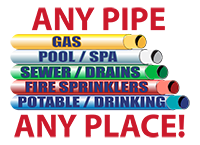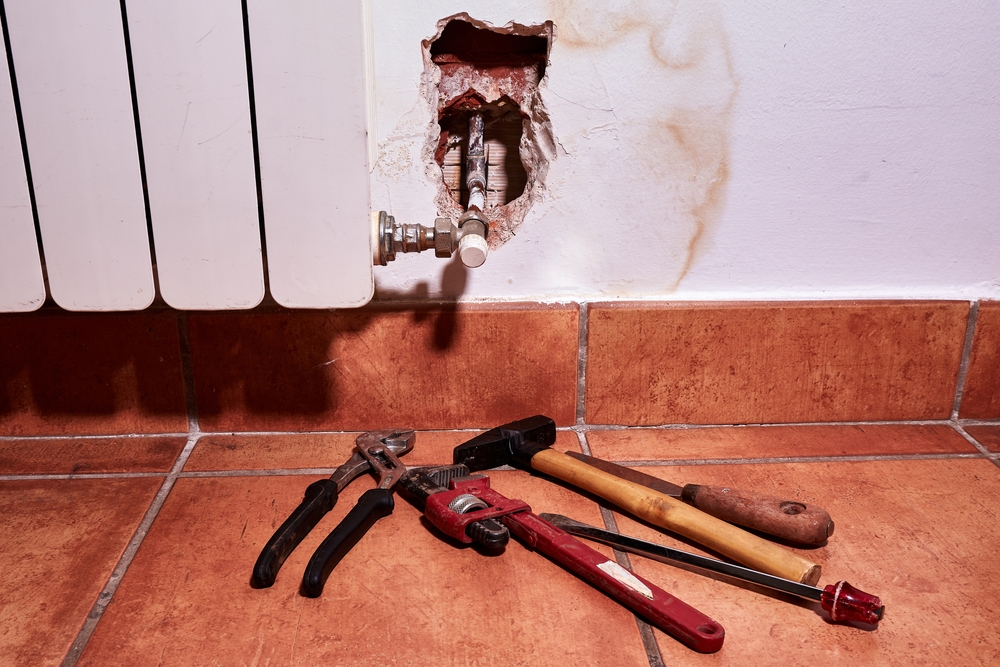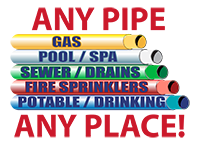Are you currently dealing with unexpected plumbing issues such as drain clogs, gas leaks, or burst pipes?
Such plumbing emergencies can be sudden and unpredictable- they result in damage and inconvenience, not to mention additional stress. Responding promptly and efficiently is crucial to limit the impact and protect your home/office space.
In this blog post, we ‘ll discuss in detail about effectively dealing with plumbing emergencies.
By following the steps outlined here, you’ll be prepared to take the necessary actions, ensuring the safety of your building and minimizing disruptions to your daily routine.
Common Plumbing Issues
So, what are some of the plumbing emergencies you may encounter? Look at the list here.
Burst pipes/flooding: Sudden and significant pipe leaks that can lead to extensive water damage. If unattended, this can lead to flooding. For example, your kitchen floor or bathroom may become flooded because of damaged pipes.
Frozen pipes: This is a common occurrence during winter months. Freezing temperatures can cause pipes to freeze, leading to potential bursts when the ice expands. Inspect the pipes closely for cracked pipes and call a plumber as soon as possible.
Clogged drains: Blockages in sinks, showers, or toilets prevent proper drainage. Any fixture that drains slowly or incompletely requires immediate attention.
Sewage backups: Overflow or blockages in the sewage system, causing sewage to back up into sinks, toilets, or other fixtures. Sometimes, it can cause water in your house or office to smell bad; this indicates issues with your septic tank, sump, or other systems. This is a serious health hazard and must be handled promptly.
Leaking faucets or fixtures: Persistent leaks from faucets, showers, or other plumbing fixtures that waste water may cause damage. These may not qualify as an emergency but if left unattended for too long, they may become problematic.
Water heater malfunctions: Issues with water heaters that result in overheated water or very cold water needs prompt care. Heaters can also get noisy or develop leaks which is again a concern that requires professional intervention.
Gas leaks: Natural gas or propane leaks can pose a serious safety hazard as they run the risk of potential fires or explosions.
Water line leaks: Leaks in the main water supply line to your home, causing water wastage and potential property damage.
Overflowing toilets: Toilets that continuously overflow or fail to flush properly. Sometimes, you can address it easily by checking the tank for any issues and repairing it. However, if it persists, call a plumber.
Sump pump failures: Malfunctions in sump pumps, which can result in basement flooding during heavy rainfall or high water table levels.
Garbage disposal failure: These can become clogged too and shut off automatically. Call a plumber if resetting or other remedies don’t work.
Remember, these emergencies can vary in severity, and it is crucial to take appropriate actions based on the specific situation and seek professional help when needed.
Handling Plumbing Emergencies
Dealing with a plumbing emergency requires a keen eye for identifying the telltale signs of an urgent situation. Even though plumbing emergencies can be alarming, it’s important to stay calm and think clearly. Assess the situation to determine the severity of the problem.
Is it a minor issue that you can address on your own, or does it require professional assistance? Understanding the scope of the emergency will help you make informed decisions moving forward.
Here are some pointers on how to handle some of the plumbing emergencies.
Water heater issues
A malfunctioning water heater can disrupt your daily routines, and it can include the following problems:
Very hot water
If your shower or faucet water is extremely hot or poses a burn risk, it indicates a water heater problem.
Solution
In such cases, promptly turn off the water heater and, if safe to do so, open hot water taps throughout your home to drain the hot water. Contact a technician to assess and address the issue.
Cold water/noisy heater
If there’s no hot water at all or strange noises are coming from the unit, check the thermostat settings and ensure the pilot light is on.
Solution
If the problem persists, it may require professional repair or replacement. Contact a plumber specializing in water heater repairs to diagnose and resolve the issue.
Leaky water heater: These leaks can lead to flooded bathrooms. A good way to determine leaks is to check the drip pan; an empty pan indicates no leakage, if not, it confirms the heater issue.
Solution
If the water heater is leaking, turn off the cold water valve (typically located above or on the side of the heater) that supplies water to the unit. Additionally, it is a good idea to cut off the main water supply to prevent any further damage.
Next, switch off the water heater itself.
Electric water heater
Locate the circuit breaker that powers the water heater and switch it off. In cases where the unit is equipped with a plug, unplug it after turning off the breaker.
Gas water heater
Locate the gas line (typically coded in yellow, black, or stripes) connected to the water heater, linked to a valve resembling a box at the bottom of the unit. To shut off the gas supply, look for a red handle on the valve and turn it in the direction indicated by a large arrow.
If water heaters are not near a drain, use a garden hose by connecting it to the drain valve located at the bottom of the heater to redirect the water. Ensure a secure attachment between the hose and the valve, allowing the water heater to drain effectively.
Dripping/leaking faucets
While leaking faucets can be frustrating, they may not constitute an emergency.
Solution: If the leak is minor, turn off the water valve using your hands and proceed with caution. Don’t use wrenches to switch off the valve as it can lead to more damage. Cut off the main water supply in case you can’t shut off the valve.
If you’re not sure of what to do, it’s best to consult a plumber to prevent a plumbing emergency.
Frozen/cracked pipes
Frozen pipes are a common occurrence during colder months, often leading to plumbing issues.
Solution
If you notice a frozen pipe, carefully inspect it for signs of splitting, cracking, or broken fittings. Any visible damage should prompt an immediate call to a plumber.
If there’s no visible damage, use a hair dryer to thaw the entire pipe. Never use an open flame near a frozen pipe, as it can harm the pipes even more.
To prevent frozen pipes, take preventative measures such as disconnecting garden hoses, insulating pipes to keep them warm, having open cabinets to allow warm air circulation, and maintaining an optimum warm temperature.
Leaking/burst pipes
When faced with a leaking pipe, there is little you can do on your own to resolve the issue. Similarly, burst pipes can cause extensive water damage and require immediate attention.
Leaky pipes
Switch off the main valve and contact a professional plumber at the earliest. Leaking or broken pipes need to be repaired, replaced; and, your plumbing systems must be thoroughly inspected for any additional issues.
Burst pipes
If you’re faced with a burst pipe, locate the specific area of the leak and wrap it tightly with rubber or cloth. Turn on nearby faucets to drain the remaining water in the pipes and alleviate pressure. Inform the plumber about the situation and follow their instructions until they arrive.
Avoid resorting to home remedies found online, as they may aggravate the problem and delay professional repairs.
Clogged drains and toilets
Clogged drains and toilets can be a common plumbing issue. The same is the case with running or leaky toilets.
Solution
In some cases where your systems drain slowly but completely, you can use home remedies.
Turn off the water supply first. Start by using a plunger to dislodge the blockage. If that doesn’t work, try using a drain snake or a mixture of baking soda and vinegar to break down the clog. Avoid using harmful chemical drain cleaners as they can be harmful to both your plumbing system and the environment.
For running toilets, check the tank hardware and see if they can be easily fixed.
If your efforts are unsuccessful, it’s time to call a professional plumber.
Garbage disposal failures
These units can become clogged too- they either switch off or make whirring noises during issues.
Solution: If you can still hear the noise from the unit, reset the unit. Press the red button to reset. If this doesn’t work, use an Allen wrench to turn the blades so that any clogs can be dislodged. If successful, remove these blockages using tongs (preferably). Reset the switch again.
If everything fails and the machine doesn’t start, that’s right, call a plumber!
Gas leaks: As you know, these are hazardous and require immediate attention.
Solution: Cut off the gas supply and move to a safer place. Call plumbing professionals who are experts in handling gas leaks.
Key Takeaways
In summary, follow these key steps to handle a plumbing emergency.
Turn off the water supply: The first and most crucial step in any plumbing emergency is to turn off the main water supply to prevent further damage. Locate the main shut-off valve in your home, usually found near the water meter or where the main water line enters your property.
Switch off the water heater: Leaving this on can be dangerous and it could burst under pressure or due to overheating.
Open drains/spigots: Open your outdoor spigots or drains to alleviate the pressure and empty the pipes of excess water.
Control damage: While waiting for the plumber to arrive, you can take certain temporary measures to minimize the damage. For instance, use buckets or towels to collect leaking water, and turn on fans or dehumidifiers to dry the affected area. It’s important to remember that these are temporary solutions and not permanent fixes. The ultimate resolution should be left to the professionals.
Shut off power: Switch off the main power if required. Electrical power in contact with water can be dangerous, so it’s always safer to switch the power off till help arrives.
Seek professional help: For major plumbing emergencies, such as burst pipes or sewage backups, it’s essential to contact a licensed plumber immediately. Keep the contact information of reliable plumbing services readily available for such situations. Inform them about the emergency and provide as many details as possible to ensure they come prepared with the necessary equipment and expertise.
Preventing Plumbing Emergencies
As always, prevention is better than cure! Schedule regular maintenance checks for your plumbing system, including inspections of pipes, valves, and fixtures. Insulate pipes to avoid their freezing in cold weather.
Plus,
- Understand your plumbing system thoroughly so you know what to do and how to shut it off.
- Don’t use home remedies if unsure. Always call professionals for complex plumbing issues.
- Don’t treat drains as waste bins. This means not throwing food, litter, or other stuff in toilets or garbage disposal units that they can’t process.
- Use automatic detection systems for leaks. Such systems can alert you to dangerous leaks and shut off your systems automatically.
Despite our best efforts, emergencies can still happen. Whether it’s your home or office, it is critical to seek professional assistance from your nearest plumbing service provider in such situations.
These experts possess the knowledge and skills to effectively handle plumbing emergencies; they provide accurate solutions and prompt services to restore the functioning.
Emergency Plumbing Services Near Me
Emergencies have a knack for occurring at the most inconvenient times, which is why having access to plumbing services round the clock is essential. Calling a plumber promptly can expedite their response and ensure they arrive at your home as quickly as possible.
With an impressive array of plumbing solutions, we at San Diego Plumbing & Pipelining understand the urgency of your plumbing woes and are just a call away! Our expert and professional teams are always available 24/7 to handle your needs.
Contact us and request a free estimate now!







